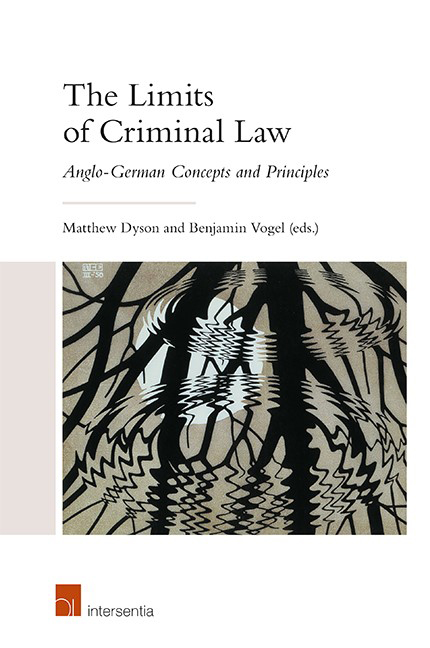Book contents
- Frontmatter
- Preface
- Contents
- List of Cases
- List of Abbreviations
- List of Contributors
- Chapter 1 Introduction
- PART I CORE PRINCIPLES OF CRIMINAL LAW
- PART II CRIME AND TORT
- PART III CRIME AND MEDICAL
- PART IV CRIME AND REGULATION
- PART V ADMINISTRATIVE SANCTIONS
- PART VI ALTERNATIVE ENFORCEMENT
- PART VII COUNTER-TERRORISM
- PART VIII CRIME AND INTELLIGENCE
- PART IX CONCLUSION
- Index
- About the Editors
Chapter 24 - Intelligence and Crime Control in the Security Law of Germany
Published online by Cambridge University Press: 11 February 2021
- Frontmatter
- Preface
- Contents
- List of Cases
- List of Abbreviations
- List of Contributors
- Chapter 1 Introduction
- PART I CORE PRINCIPLES OF CRIMINAL LAW
- PART II CRIME AND TORT
- PART III CRIME AND MEDICAL
- PART IV CRIME AND REGULATION
- PART V ADMINISTRATIVE SANCTIONS
- PART VI ALTERNATIVE ENFORCEMENT
- PART VII COUNTER-TERRORISM
- PART VIII CRIME AND INTELLIGENCE
- PART IX CONCLUSION
- Index
- About the Editors
Summary
This chapter describes the emergence and development of a ‘security law’ in Germany, with a focus on the role of intelligence services in crime control. It considers the constitutional limits of restructuring intelligence, police and criminal prosecution to create this new legal category. This has involved not only shifting boundaries but also challenges to the purpose of and means employed to carry out the state's objectives. In order to examine these shifts and altered boundaries, this chapter addresses the investigation thresholds of intelligence, police and criminal law and shows how crime control can be carried out under different labels.
The legal debate around security, intelligence and crime control begins at the highest level, within constitutional law. The Federal Constitutional Court in Germany was called upon in a series of cases to decide how to locate the new security policy within the constitutional system. The particular question it faced was whether its precaution-based approach fundamentally tips the balance between freedom and intervention-oriented security in favour of security. In addition to this conceptual question, the Court had to set the boundaries of state security, making security regulations subject to requirements of proportionality and other principles (see 1). Finally, the Court needed to deal with the internal structure of the new security law. To this end, it had to address a third related issue, the interaction between the three branches of security law (hereinafter understood as intelligence, police and criminal prosecution) and their respective characteristics (2). The Court also had to evaluate the constitutionality of how powers and tasks were being moved into the remit of the authorities outside criminal justice. In particular, the protection of basic rights on the one hand sets some limitations on the use of crime control by intelligence services or by intelligence means, and on the other it requires a separation between the three security branches (3).
CONSTITUTIONAL FOUNDATIONS OF INTELLIGENCE, PREVENTIVE POLICE LAW AND CRIMINAL JUSTICE
SECURITY AS A STATE TASK
Security law operates on a precautionary basis, in other words that risks in society should be managed, and therefore the first issue must be the state’s constitutional foundation for that very task.
- Type
- Chapter
- Information
- The Limits of Criminal LawAnglo-German Concepts and Principles, pp. 507 - 538Publisher: IntersentiaPrint publication year: 2020



